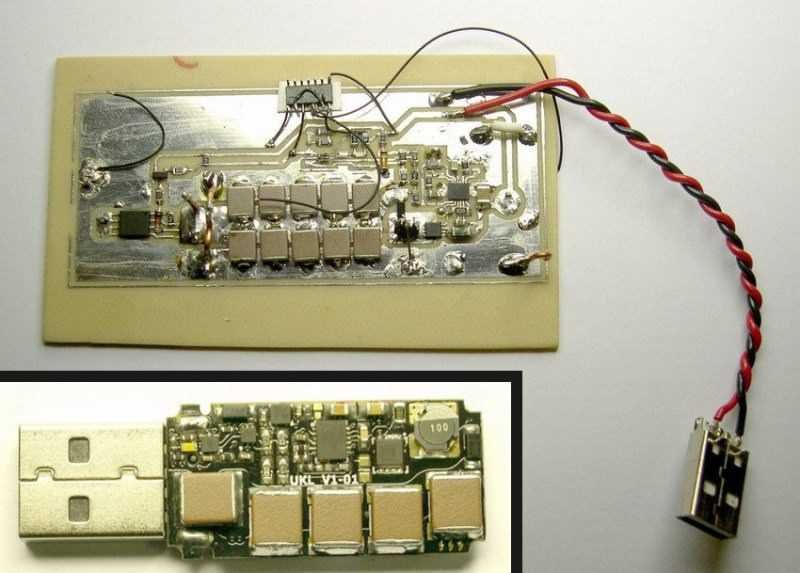Security experts have been warning for years about the dangers of USBs. They quite rightly consider them good conduits for malware. But a Russian researcher has discovered a more direct method of destroying one computer. Electricity.

The idea is simple: the researcher, nicknamed Deep Purple, added to a "broken" USB stick, and installed one inverter DC-DC converter and some capacitors that can be purchased from Chinese websites.
When the USB stick is inserted into the computer port, it starts charging the capacitors to -110V, as the blog reports Hackaday. A transistor then discharges the stored electricity through it door of USB.
This continues until the capacitors have dropped to -7V, at which point the DC-DC converter turns on again, and begins charging the capacitors for the next cycle.
USB ports are usually protected from electrical attacks, but the inverter DC-DC converter seems to bypass these defenses. It overwhelms them and eventually can damage the sensitive internal components of each computer.
The researcher (very wisely) did not publish schematic representations of it discoverys, nor critical details on how one might build such a USB, as such a device has the potential to burn not only the USB port, but potentially the motherboards cards, or even the CPU itself.
"I'm not going to talk about it, but a former colleague tells me it's like an atomic bomb," says Deep Purple.
It certainly gives us another good reason to never use an untrusted USB device.





